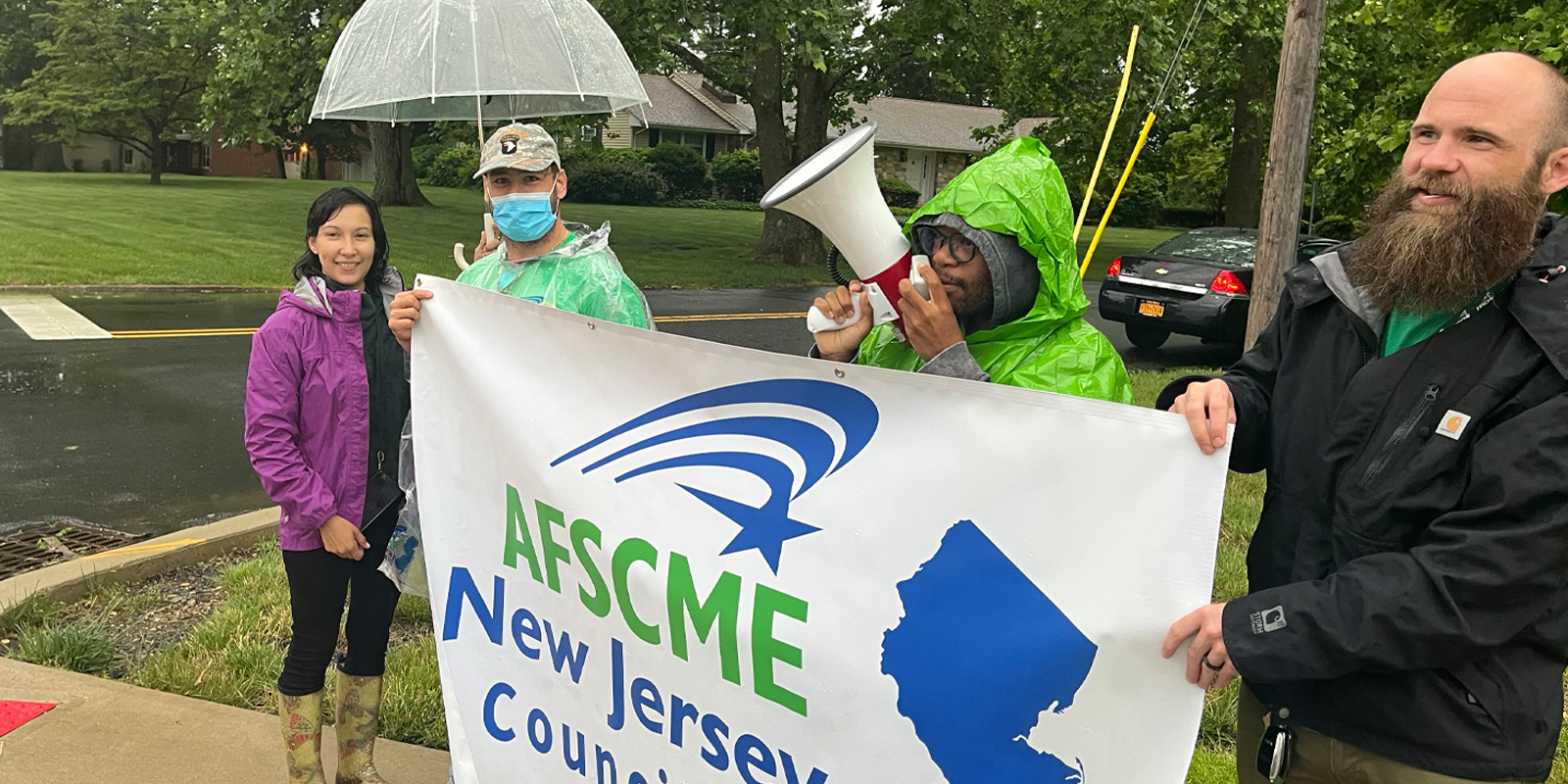Residential counselors and maintenance employees for SERV Centers of New Jersey in Mercer County may soon be going back on strike after spending Thursday rallying outside a country club that hosted the 30th Annual Volley for SERV Tennis Tournament and Awards Reception.
While SERV executives received praise for the work SERV does in the community, the workers were outside protesting the terrible conditions that they and their patients must endure. On Labor Day 2021, these front-line workers – who provide critical mental, addition and behavioral services – held a 24-hour unfair labor practice strike.
“I love what I do but it is disheartening to know that your employer doesn’t respect who you are and doesn’t take care of the caretakers,” said Roosevelt Day, a residential counselor. “We are going to strike, we are going to keep fighting, because if not, we will never be heard.”
Even though SERV workers voted overwhelmingly to form a union in 2019, SERV management continues its campaign to defeat the union, workers say.
A recent survey conducted by AFSCME New Jersey details the issues these workers face. These include attacks on patients and staff and inadequate staffing. Workers say SERV facilities are infested with rats, bats and bed bugs and often are physically unsafe. Low pay has contributed to high staff turnover, even while top executives enjoy six-figure pay increases and five-figure bonuses, according to SERV employees.
“None of these issues are new, even the National Labor Relations Board has found SERV in violation of the law and yet they continue because state regulators have failed to do their job to protect some of our communities’ most vulnerable and the heroes that work with them,” said Steve Tully, director of AFSCME New Jersey, which represents more than 20,000 workers throughout the Garden State.
“At this point, the state of New Jersey and Governor (Phil) Murphy are equally responsible as (SERV President and CEO) Regina Widdows and the rest of the executives because they are not even enforcing the laws and policies they championed,” Tully said.
Sharon McLean, a residential counselor, outlined the workers’ expectations – a committee to handle safety issues; starting pay of $18 an hour, with increases for years of service; and “protecting the few benefits we currently have.”
“We won’t stop because we are not just standing up for ourselves, we are standing up for our consumers, their families and everyone who believes that this type of work is important,” McLean said.
A strike vote does not mean the workers are going to walk off the job, but it signals the staff’s willingness to do so. It is now up to SERV management to do work with staff to address their concerns by coming to the bargaining table.

